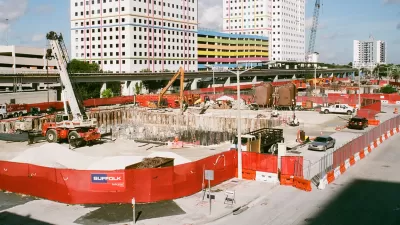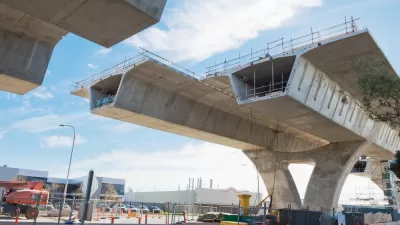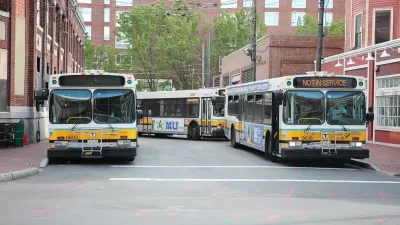The city of Boston is working to ensure that a diverse collection of residents are benefitting from the fruits of the city's current building boom.
"After years of disappointing results from an ordinance intended to increase the hiring of Boston residents, women, and minorities to construction jobs, the city of Boston is eyeing changes to make it more effective," according to an article by Matt Rocheleau.
The work of requiring a local and diverse cross section of employment opportunities for the construction trades falls to a 37-year-old ordinance called the Boston Residents Jobs Policy. The ordinance, "requires construction companies to demonstrate good faith efforts to guarantee that 50 percent of all hours worked go to Boston residents, 25 percent go to minorities, and 10 percent go to women," according to Rocheleau. The ordinance, however, is having trouble meeting the demands of the current building boom. Progress has stalled in hiring of minorities, and hiring of women and local residents has never hit targets.
Led by Karilyn Crockett, the city's director of economic policy and research, the city is looking for ways to improve the ordinance in a review process that began in 2015. Changes in communications policy have already been implemented, and open data improvements are also planned in an effort to improve results.
FULL STORY: City ponders how to boost hiring of certain groups in construction industry

Study: Maui’s Plan to Convert Vacation Rentals to Long-Term Housing Could Cause Nearly $1 Billion Economic Loss
The plan would reduce visitor accommodation by 25,% resulting in 1,900 jobs lost.

North Texas Transit Leaders Tout Benefits of TOD for Growing Region
At a summit focused on transit-oriented development, policymakers discussed how North Texas’ expanded light rail system can serve as a tool for economic growth.

Why Should We Subsidize Public Transportation?
Many public transit agencies face financial stress due to rising costs, declining fare revenue, and declining subsidies. Transit advocates must provide a strong business case for increasing public transit funding.

How to Make US Trains Faster
Changes to boarding platforms and a switch to electric trains could improve U.S. passenger rail service without the added cost of high-speed rail.

Columbia’s Revitalized ‘Loop’ Is a Hub for Local Entrepreneurs
A focus on small businesses is helping a commercial corridor in Columbia, Missouri thrive.

Invasive Insect Threatens Minnesota’s Ash Forests
The Emerald Ash Borer is a rapidly spreading invasive pest threatening Minnesota’s ash trees, and homeowners are encouraged to plant diverse replacement species, avoid moving ash firewood, and monitor for signs of infestation.
Urban Design for Planners 1: Software Tools
This six-course series explores essential urban design concepts using open source software and equips planners with the tools they need to participate fully in the urban design process.
Planning for Universal Design
Learn the tools for implementing Universal Design in planning regulations.
Ascent Environmental
Borough of Carlisle
Institute for Housing and Urban Development Studies (IHS)
City of Grandview
Harvard GSD Executive Education
Toledo-Lucas County Plan Commissions
Salt Lake City
NYU Wagner Graduate School of Public Service





























